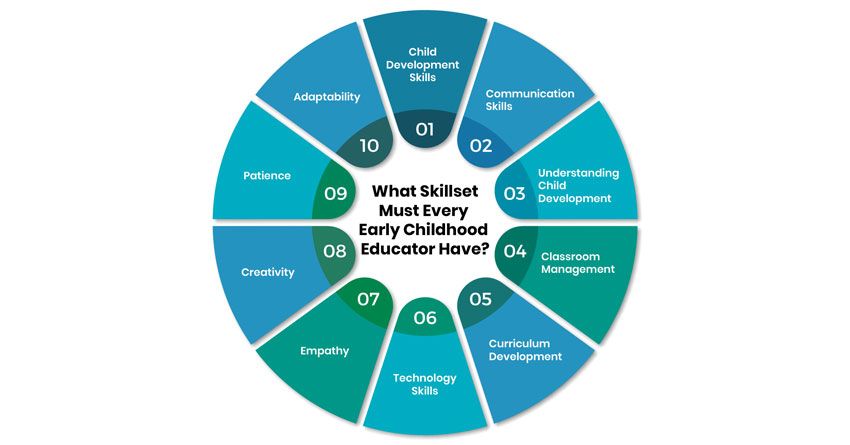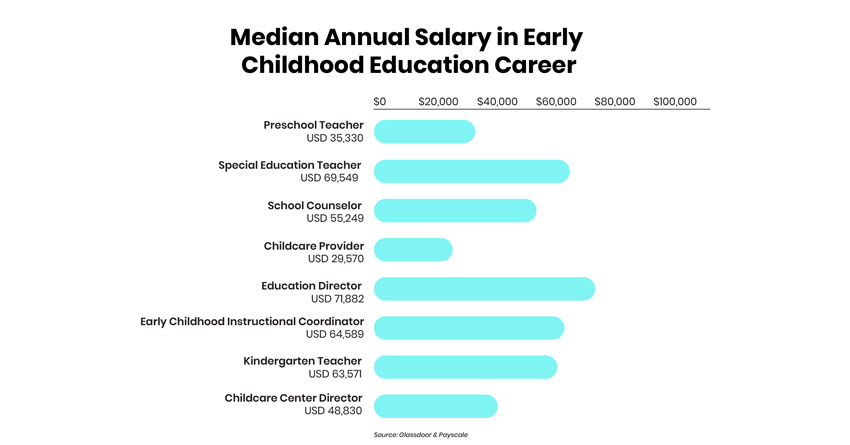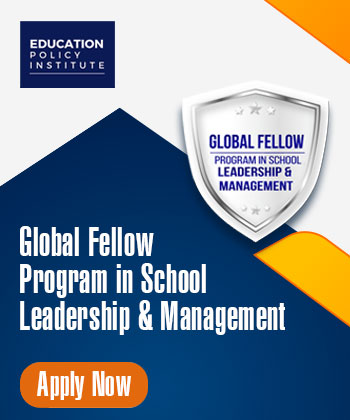How to Build a Career in Early Childhood Education?
February 22, 2024One thing about educators— they are irreplaceable heroes in our educational journey. Most importantly for children. Young minds, through the early steps of education, need early childhood educators to guide them.
If you're thinking about entering the field of early childhood education, chances are you have a fondness for working with kids — even if it's just a bit.
A career in education can bring great fulfillment, but it's crucial to understand the skills necessary for success in the field. To begin with, it demands ample patience and thorough preparation. Before you launch your career in early childhood education, you need to understand what this career demands and how to get into it.
What is Early Childhood Education, and Who are Early Childhood Educators?
Early childhood education encompasses the learning phase from birth to 8 years old, during which a child's brain is highly receptive to the surrounding environment. This critical phase of "remarkable growth" necessitates a specialized educational approach to equip children with essential skills and foundational concepts to prepare them for future stages of life. Early childhood educators are tasked with caring for and educating these young children.
These educators can teach any grade ranging from pre-kindergarten to fifth grade— working typically with pre-kindergarten, kindergarten, and first-grade students. Early childhood educators and leaders can work in various settings, including private schools, public schools, and daycare centers. Obtaining an early childhood education degree equips individuals for a fulfilling career.
This brings us to an interesting question what's the main focus of early childhood educators?
Role of Early Childhood Educators
The primary focus of early childhood educators is to assist children in early language development, reading, and social skills. Additionally, they design lessons and create innovative activities to engage children. However, their role extends beyond mere fun and games as they:
- Develop age-appropriate lesson plans.
- Assist students with homework.
- Conduct individual evaluations.
- Hold parent conferences and make referrals.
- Ensure compliance with state requirements.
- Guide students through daily schedules.
- Facilitate play-based learning and social-emotional development.
- Support children experiencing trauma.
- Utilize evidence-based teaching approaches.
Essentials for Starting Your Career in Early Childhood Education
To start your career in early childhood education, you need to have—
- A Proper Educational Foundation: In early childhood education or a related field, it’s almost mandatory to complete a four-year degree program like a bachelor's degree that’ll equip you with essential skills in curriculum planning, student mentorship, and evaluation processes. Above all, you must understand your state's specific requirements for licensure, credentials, and certifications in early childhood education.
- Gain Practical Experience: Participating in fellowships or opportunities that provide in-classroom experience is a great way to get into this field. You can also seek roles or opportunities working with elementary-aged children, such as caregiver positions or after-school tutoring programs. These experiences not only enhance your skills but also expose you to diverse cultures, emphasizing the importance of diversity, equity, and inclusion in early childhood education.
- Take State Licensing Exam: Upon completing your degree, it is essential to take a state licensing exam to officially work as an early childhood educator. But make sure you understand the specific requirements, fees, and additional steps your state may have for licensing. Remember, the exam may be comprehensive, so you need to assess the experiences and training gained during your undergraduate studies and prepare accordingly.
What Skillset Must Every Early Childhood Educator Have?
Early childhood educators possess a diverse array of essential skills crucial for their role:

- Child Development Skills: Child development skills are essential especially when you are working with young children. These skills enable you to understand and support children's growth and development effectively.
- Communication Skills: Effective communication is essential for interacting with children, parents, colleagues, and administrators. As an educator, you must adapt your communication style to effectively convey information about early childhood education programs and build positive relationships with all stakeholders.
- Understanding Child Development: As an early childhood educator, you must have a deep understanding of cognitive, social, emotional, and physical development in children. This knowledge enables early childhood educators and leaders to tailor learning experiences that support holistic growth.
- Classroom Management: To effectively manage a classroom of young children, you must have skills in establishing routines, setting boundaries, and creating a positive and safe environment conducive to learning.
- Curriculum Development: You need to excel in designing engaging and age-appropriate lesson plans and curricula that cater to the developmental needs of your students.
- Technology Skills: Today's digital age calls for proficiency in using educational technology such as software and interactive tools to enhance teaching effectiveness and enrich learning experiences for young children.
- Empathy: Early childhood educators must empathize with children's emotions and experiences, providing comfort and support during times of fear or uncertainty.
- Creativity: When working with children, you need to be creative enough while planning activities for your learners, incorporating arts, storytelling, physical play, and educational games to maintain their interest and enthusiasm.
- Patience: As an early childhood educator, you must possess patience to understand and guide young children who are curious, impulsive, and learning appropriate behavior. It is imperative to provide unhurried attention and guidance as children explore and grow.
- Adaptability: Early childhood educators and leaders must possess the flexibility to adapt to changing circumstances, whether it involves addressing behavioral challenges or adjusting teaching methods to meet the needs of individual students.
What is the Career Outlook in Early Childhood Education?
The career outlook for early childhood educators is promising due to the high demand for qualified teachers in schools catering to young students. According to the U.S. Bureau of Labor Statistics, employment is expected to increase by 3 percent from 2022 to 2032.
Additionally, there are projected to be approximately 56,300 openings in early childhood education each year over the decade.
Careers in early childhood education include—

Excel Early Childhood Education with the Education Policy Institute (EPI)
Education Policy Institute primary focus is to conduct research aimed at enhancing the educational management capabilities of various stakeholders including edupreneurs, senior academics, policymakers, senior executives, heads of schools and universities, as well as other higher education and vocational training institutions. EPI programs emphasize early childhood educators and leaders adopting innovative strategies and concepts within their educational institutions.




